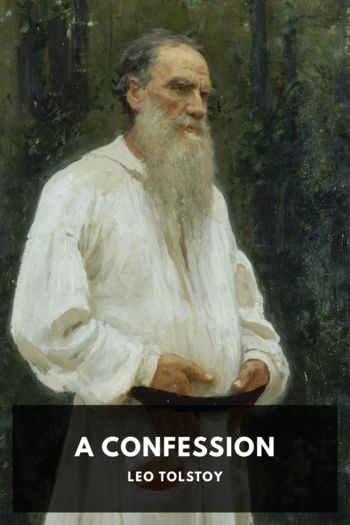Anna Karenina by Leo Tolstoy (feel good books TXT) 📕

- Author: Leo Tolstoy
Book online «Anna Karenina by Leo Tolstoy (feel good books TXT) 📕». Author Leo Tolstoy
Levin put on his big boots, and, for the first time, a cloth jacket, instead of his fur cloak, and went out to look after his farm, stepping over streams of water that flashed in the sunshine and dazzled his eyes, and treading one minute on ice and the next into sticky mud.
Spring is the time of plans and projects. And, as he came out into the farmyard, Levin, like a tree in spring that knows not what form will be taken by the young shoots and twigs imprisoned in its swelling buds, hardly knew what undertakings he was going to begin upon now in the farm work that was so dear to him. But he felt that he was full of the most splendid plans and projects. First of all he went to the cattle. The cows had been let out into their paddock, and their smooth sides were already shining with their new, sleek, spring coats; they basked in the sunshine and lowed to go to the meadow. Levin gazed admiringly at the cows he knew so intimately to the minutest detail of their condition, and gave orders for them to be driven out into the meadow, and the calves to be let into the paddock. The herdsman ran gaily to get ready for the meadow. The cowherd girls, picking up their petticoats, ran splashing through the mud with bare legs, still white, not yet brown from the sun, waving brush wood in their hands, chasing the calves that frolicked in the mirth of spring.
After admiring the young ones of that year, who were particularly fine—the early calves were the size of a peasant’s cow, and Pava’s daughter, at three months old, was as big as a yearling—Levin gave orders for a trough to be brought out and for them to be fed in the paddock. But it appeared that as the paddock had not been used during the winter, the hurdles made in the autumn for it were broken. He sent for the carpenter, who, according to his orders, ought to have been at work at the thrashing machine. But it appeared that the carpenter was repairing the harrows, which ought to have been repaired before Lent. This was very annoying to Levin. It was annoying to come upon that everlasting slovenliness in the farm work against which he had been striving with all his might for so many years. The hurdles, as he ascertained, being not wanted in winter, had been carried to the carthorses’ stable; and there broken, as they were of light construction, only meant for feeding calves. Moreover, it was apparent also that the harrows and all the agricultural implements, which he had directed to be looked over and repaired in the winter, for which very purpose he had hired three carpenters, had not been put into repair, and the harrows were being repaired when they ought to have been harrowing the field. Levin sent for his bailiff, but immediately went off himself to look for him. The bailiff, beaming all over, like everyone that day, in a sheepskin bordered with astrachan, came out of the barn, twisting a bit of straw in his hands.
“Why isn’t the carpenter at the thrashing machine?”
“Oh, I meant to tell you yesterday, the harrows want repairing. Here it’s time they got to work in the fields.”
“But what were they doing in the winter, then?”
“But what did you want the carpenter for?”
“Where are the hurdles for the calves’ paddock?”
“I ordered them to be got ready. What would you have with those peasants!” said the bailiff, with a wave of his hand.
“It’s not those peasants but this bailiff!” said Levin, getting angry. “Why, what do I keep you for?” he cried. But, bethinking himself that this would not help matters, he stopped short in the middle of a sentence, and merely sighed. “Well, what do you say? Can sowing begin?” he asked, after a pause.
“Behind Turkin tomorrow or the next day they might begin.”
“And the clover?”
“I’ve sent Vassily and Mishka; they’re sowing. Only I don’t know if they’ll manage to get through; it’s so slushy.”
“How many acres?”
“About fifteen.”
“Why not sow all?” cried Levin.
That they were only sowing the clover on fifteen acres, not on all the forty-five, was still more annoying to him. Clover, as he knew, both from books and from his own experience, never did well except when it was sown as early as possible, almost in the snow. And yet Levin could never get this done.
“There’s no one to send. What would you have with such a set of peasants? Three haven’t turned up. And there’s Semyon. …”
“Well, you should have taken some men from the thatching.”
“And so I have, as it is.”
“Where are the peasants, then?”
“Five are making compôte” (which meant compost), “four are shifting the oats for fear of a touch of mildew, Konstantin Dmitrievitch.”
Levin knew very well that “a touch of mildew” meant that his English seed oats were already ruined.





Comments (0)